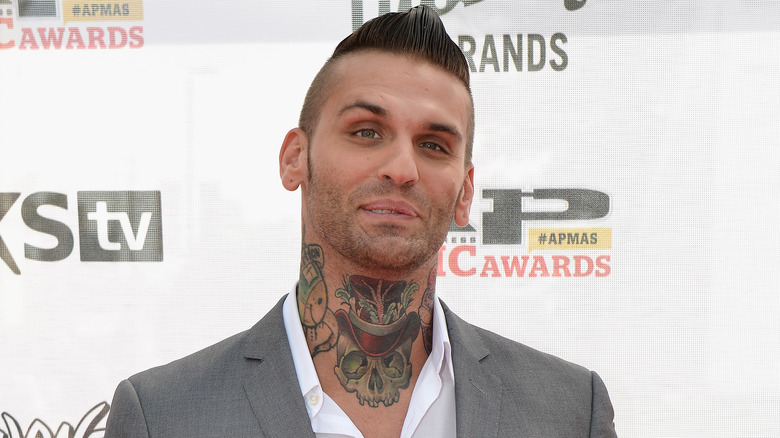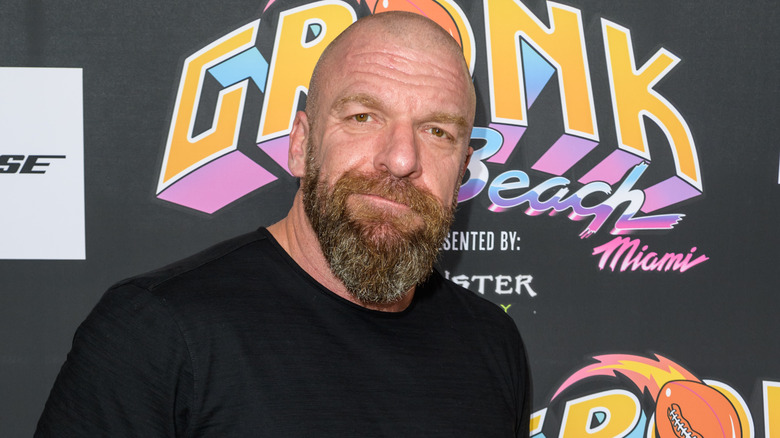Corey Graves Contrasts WWE NXT With Time He Spent In FCW
Over the last 20 or so years, WWE has gone through various developmental systems. The company once used smaller promotions like Ohio Valley Wrestling and Deep South Wrestling before making the switch to FCW and, eventually, NXT. "WWE SmackDown" commentator Corey Graves is someone who went through both FCW and NXT, and the retired wrestler compared the two experiences while appearing on "The Kurt Angle Show."
"FCW vs. NXT — it was two completely different systems, basically different worlds," Graves said. "[In] FCW, we were sort of the red-headed step-children on this island down in Tampa, hoping that maybe one of us, someday, would make a couple of bucks."
The commentator recalled making the standard amount of $500 or $600 per week, with most days spent training while performing at live events at night in front of very small crowds. Graves then brought up a conversation from his time in developmental with current World Heavyweight Champion Seth Rollins, with Graves expressing his confusion over the bleak standards in FCW knowing they were put on by WWE in some form.
"It was absolutely not glamorous," Graves continued. "So I think the goal when making the NXT changeover was to really overhaul the entire system, and I know that was really [Paul "Triple H" Levesque's] baby at the time."
Levesque's Overhaul Of WWE Developmental
According to Graves, Levesque saw room for improvement over FCW and wanted to help the company's younger talent succeed. Some aspects of FCW, such as the presence of Dusty Rhodes, were carried over to NXT. However, many things changed.
"A lot of us were just blown away by the facility — the [WWE] Performance Center," Graves said. As an example, Graves revealed that the Performance Center has a kitchen for everyone to use, while the FCW facilities had a single microwave that had to be shared by everyone. Additionally, it soon became clear that things were going to be scaled up from FCW, with many more people coming through developmental.
"[In] FCW, there were a handful of us who were the ... indie guys, but there were a lot of outsiders," Graves stated. "And then NXT came, and it was like okay — everyone who we felt should be here was starting to get an opportunity."
While not all of those independent wrestlers stuck around WWE long-term, many of them did. More than 10 years later, Levesque is now in charge of WWE creative, with the inception of NXT having served as his training ground.

